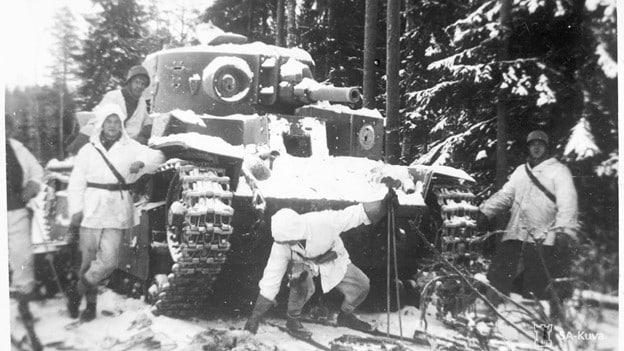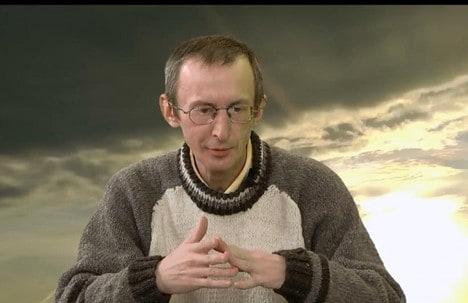Historians believe that Hitler's plan to attack Russia first crystallized following the Winter War of 1939-1940 between the Soviet Union and Finland. Although the overwhelming numerical and military superiority of the Red Army subdued the Finns after three months of fighting, its bumbling performance in the early stages of the fighting encouraged Hitler to believe that the Russians were no match for the Wehrmacht. [1] The respected Russian blogger and military expert Anatoly Nesmiyan, who writes under the pseudonym El-Murid, believes that whatever the outcome of the current fighting between Russia and Ukraine, it is clear that all the money that Putin diverted from economic development and poured into defense spending has failed to produce and efficient and intimidating war machine. Russia has managed to defeat irregular forces but its military deficiencies have been exposed forcing Vladimir Putin to invoke nuclear threats. Now that Russia's military weakness has been exposed it is but a matter of time till an adversary test's Russia in one of the many places where Russia is militarily involved.
Nesmiyan's comments follow below:[2]

Finnish troops in the 1939-1940 Winter War (Source: Yle.fi)
"The threat to use nuclear weapons in an essentially quite ordinary, local conflict signifies the Russian leadership's complete and ultimate bankruptcy in every sense.
"Putin, under the billboard 'enemies all around,' siphoned off astronomical sums from the country's development budget, and stuffed them into what was called a 'defense capability.' And as long as he was chasing partisans riding on 'tachankas' [A horse-drawn cart with a mounted machine gun in a possible reference to Syria], or robbing the resources of those incapable of retaliating against him, everything seemed to be going well. True, in Syria, questions [about the Russian army's combat readiness] had already arisen, but they were quickly muffled by the victory screams.
SUPPORT OUR WORK

"The problem is that the [Russian] top leadership itself appears to have languished in full confidence that the drawn up and mostly simply purloined cartoons about the Russian army's unprecedented power was that in fact. And, based on this confidence the war was designed, which immediately put things in their rightful place.
"The enemy's heroism is, naturally, a factor. But it's not people who wage wars. The organized structures, resources, and technology wage wars. Heroism merely serves as an indicator that the winning ingredients are severely absent, and must be filled, like [Soviet hero Alexander] Matrosov with his body. A normal army works the way a mine operates, i.e. it meets the norms and fulfils a plan. Heroism is not required here, and in fact, isn't welcomed. Anyone who has worked in a production line knows that now one there likes heroic enthusiasts. True, when there is an all hands-on deck job to meet deadlines and everything is 'on fire', then yes, heroes are needed. But it is clear that such an all hands on deck job is an indicator of poor work organization.
"In fact, the Ukrainian now in an all hands on deck situation, which is logical as it is objectively weaker. Hence the heroism of [the Ukrainian soldiers]. But the problem is that the Russian army, for all its superiority, has failings in all of its components. That starts with planning, which, in turn, starts with the formulation of the political objectives.
"It is already obvious that the political tasks were set so incompetently that any normal general should've told the [Supreme] Commander-in-Chief, even at the stage the order's receipt, that the latter is a cretin, that the latter can fire him, but he, the general, won't carry out such an order. But we don't have generals, we have officials. Thus, an inherently impossible task was due to the planning. So, excuse me, but why are you so surprised now?
"In the end, the Kremlin has gotten what it has. I do not know how this war will end military results-wise, what borders will be reached, what losses will our troops bear and inflict on the enemy. But it is already obvious that the myth of a powerful Russian army has been dispelled. Which, to be frank, will have delayed consequences (delayed but not for long).
Based on the quantity of military ventures into which the regime has been mixed up with over recent years, and the number of enemies it made under the slogan 'enemies are all around,' there will be plenty of those willing to test the strength of Russian positions following the current war. This will be true of Syria, Central Asia, and in Africa (although Africa is, naturally, the last thing that could interest us right now).
"Threats with nuclear arms are a sign that conventional options are no longer available. 4 days of local backward warfare and then best regards. And those, who are interested in this question from a practical stand point will draw conclusions. They would be fools not to do so. And so, the aftershocks of this war are inevitable. Where [will they manifest themselves]? That already is another question."

Anatoly Nesmiyan (Source: Autogear.ru)





